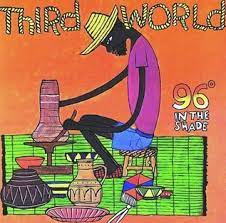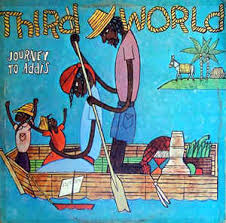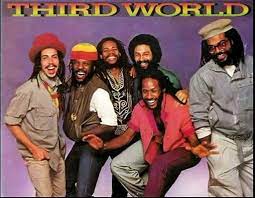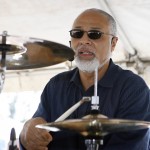BY HOWARD CAMPBELL Observer senior writer—
Willie Stewart—
FOR over 20 years Willie Stewart was drummer for the Third World band, playing on classic albums like 96 Degrees In The Shade, and hit songs such as Now That We Found Love and Love You With A Sense of Purpose.
He left the fold in 1997, and though no longer prolific as a recording musician he remains active as a teacher in South Florida. Since 2010 he has staged ‘Rhythms of Africa’ there.
The day-long session looks at the drum’s influence in Jamaican music, from mento to dancehall. It fits Stewart’s eclectic taste which includes roots-reggae (Bob Marley, Peter Tosh, The Mighty Diamonds), funk (Tower of Power; Earth, Wind and Fire), soul (Sam Cooke, Percy Sledge), R&B (Gladys Knight, Aretha Franklin), world beat (Nina Simone, Fela Kuti), rocksteady (Desmond Dekker), and calypso (the Mighty Sparrow).

Recently Stewart took time out to talk beats with the Jamaica Observer’s Howard Campbell.
Howard Campbell (HC): Do you remember your first recording session?
Willie Stewart (WS): My first-ever recording session was with my first band from Wolmer’s [Boys’ School] called The Visions; the song was Captain Hook. I want to believe we did it at Federal Recording Studios in Kingston. My first recording with Third World was the album 96 Degrees in The Shade at Harry J Studios in Kingston.
HC : When did you start improving/peaking as a drummer?
WS: The truth is I am still learning each and every day. I have to give God thanks for giving me the feel and passion for drums and rhythm; this gift is something you cannot learn in school. I did formal lessons in 1981 which opened up my mind to more ideas and also concepts and drumming techniques. I would say playing with Third World improved my creativity, recording and performance all-round but I am still a student of drums — you never stop learning.

HC: What are your favorite Third World songs, and why?
WS: Ninety-six Degrees in the Shade — the history behind the song of Paul Bogle. Cold Sweat — a true story that happened to us in Boston. Lagos Jump — our first visit to Africa [Nigeria]; this was a tribute to Lagos. Girl From Hiroshima — when we recorded the song in Dynamic studio the light was turned off and it was as if we were in Japan and using our instruments to paint this musical picture. Jah Glory — it speaks for itself; a masterpiece. Journey to Addis — another masterpiece, unique and creative. Nice Up Yourself in The Rhythm of Life — big message. African Woman — that rhythm with Bunny’s voice, wow! Try Jah Love — brings back memories of recording with Stevie Wonder in his studio in LA. Always Around — just a great and inspiring song. Moving Up — about the future generation. Hold on to Love — very strong message. Peace Flag — this song was way ahead of its time; we need it now. Take This Song — a message to the world.

HC: What Third World album do you think you were at your best?
WS: That would be 96 Degrees in The Shade and Journey to Addis.
HC: In terms of drummers, who are your favorites and why?
WS: I would say Harvey Mason for his funk pocket groove feel. Lloyd Knibbs — master drummer and unique. The godfather of ska, Carlton Barrett, for his unique, creative rhythms and unique rim shots. Tony Williams for his jazz/swing feel. Winston Grennan — excellent all-round drummer; master of all styles. Billy Cobham — all-round master; a powerhouse. Bernard Purdie — creative, in-the-pocket funk player; Dennis Chambers — all-round great drummer. Buddy Rich — unique technique to the max; fast like lightning.

HC: What types of drums did you use in Third World and now?
WS: Sonor drums. Sonor Rosewood set for 96 Degrees. Sonor Signature Series, Sonor Designer Series, Sonor SQ2 Series; Yamaha Recording Series/Yamaha Maple Custom; Tama Imperial; and Simmons Electronic Drums.
HC: How important is it for people of African descent to know that there is more to the drum than just rhythms?

WS: I think it is important that all people of Afro descent should at least experience once in their life the power of the drums and the rich connection to our culture and heartbeat. Drumming is the chord that binds people together, the bridge that opens many cultural doors, helping us to understand who we really are.”


You must log in to post a comment.